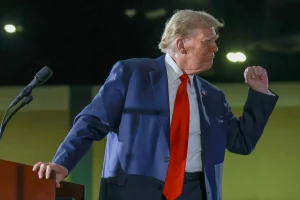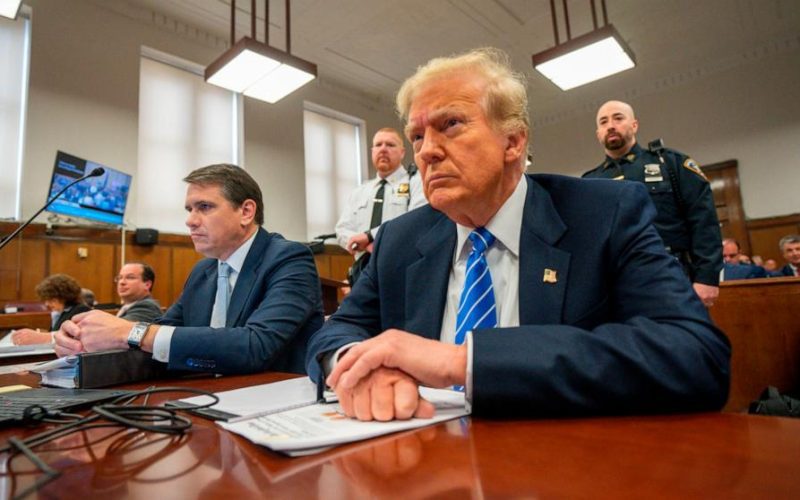The United States Supreme Court’s decision on the immunity of former President Donald Trump for actions undertaken during his presidency has stirred significant debate. This ruling establishes a precedent regarding the extent of presidential immunity and its implications for accountability and the balance of power. This article delves into the details of the case, the Supreme Court’s rationale, and the broader implications of this landmark decision.
Background of the Case

Context and Legal Precedents
The concept of presidential immunity is rooted in the belief that the President must be able to perform duties without fear of personal liability. Historically, the Supreme Court has upheld the notion that the President enjoys absolute immunity from civil damages for official acts. This principle was significantly shaped by the landmark case of Nixon v. Fitzgerald (1982), where the Court held that a President is entitled to absolute immunity from damages liability predicated on his official acts.
Specifics of the Trump Case
In this specific case, the plaintiffs argued that former President Trump’s actions, including incitements and other activities conducted while in office, should not be protected under the umbrella of official duties. They contended that certain behaviors fell outside the scope of his official responsibilities and thus should be subject to legal scrutiny.
Supreme Court’s Ruling
The Decision
The Supreme Court ruled in favor of Trump, asserting that he is immune from lawsuits for actions carried out within the scope of his official duties as President. This decision reinforces the doctrine of absolute immunity for the President regarding civil suits for official acts.
Justification and Rationale
The Court’s majority opinion emphasized the necessity of protecting the President from distractions that could impede the execution of constitutional duties. The ruling underscored that immunity is vital to ensuring that the President can act decisively and effectively without the threat of personal liability.
Implications of the Ruling
Political and Legal Ramifications
This ruling has profound implications for both the legal framework and political landscape of the United States. Legally, it reaffirms the broad scope of presidential immunity, potentially influencing future cases involving the actions of sitting or former Presidents. Politically, the decision may affect how Presidents conduct themselves, knowing they have substantial protection from legal repercussions for their official actions.
Impact on Accountability
Critics argue that this decision may embolden Presidents to engage in behavior that could be considered unethical or unlawful, without fear of legal consequences. This raises concerns about accountability and the potential for abuse of power, as the ruling suggests limited avenues for redress against a sitting President’s misconduct.
Analysis of Presidential Immunity
Legal Interpretation
The interpretation of what constitutes “official acts” is crucial. While the Court has maintained a broad view, defining actions within the scope of presidential duties can be complex and contentious. The ambiguity surrounding this definition may lead to further legal challenges and debates.
Historical Comparison
Comparing this ruling with previous cases, such as Nixon v. Fitzgerald, highlights the continuity and evolution of the doctrine of presidential immunity. While the core principle remains unchanged, the contexts and specifics of each case contribute to a nuanced understanding of this legal doctrine.
Comparative Table of Presidential Immunity Cases
| Case | President | Ruling Summary | Legal Precedent |
|---|---|---|---|
| Nixon v. Fitzgerald (1982) | Richard Nixon | Absolute immunity from civil damages for official acts | Established absolute immunity |
| Clinton v. Jones (1997) | Bill Clinton | No immunity for actions outside official duties | Distinguished between official and unofficial acts |
| Trump Immunity Case (2023) | Donald Trump | Immunity for official acts reaffirmed | Reaffirmed Nixon precedent |
Analysis Table of the Supreme Court Ruling
| Aspect | Analysis |
|---|---|
| Legal Basis | Rooted in the doctrine of absolute presidential immunity |
| Court’s Justification | Protects presidential function from disruptive litigation |
| Political Implications | Potential for reduced accountability and increased executive power |
| Criticisms | Concerns over unchecked presidential behavior and lack of recourse |
| Future Legal Challenges | Likely to arise over the definition and scope of “official acts” |
Conclusion
The Supreme Court’s ruling that Donald Trump is immune from lawsuits for his official acts as President reinforces a long-standing legal doctrine. While it aims to protect the effective functioning of the executive branch, it also raises significant questions about accountability and the potential for misuse of presidential power. This decision will undoubtedly influence future legal interpretations and the behavior of Presidents, underscoring the complex balance between immunity and accountability in the American political system.












